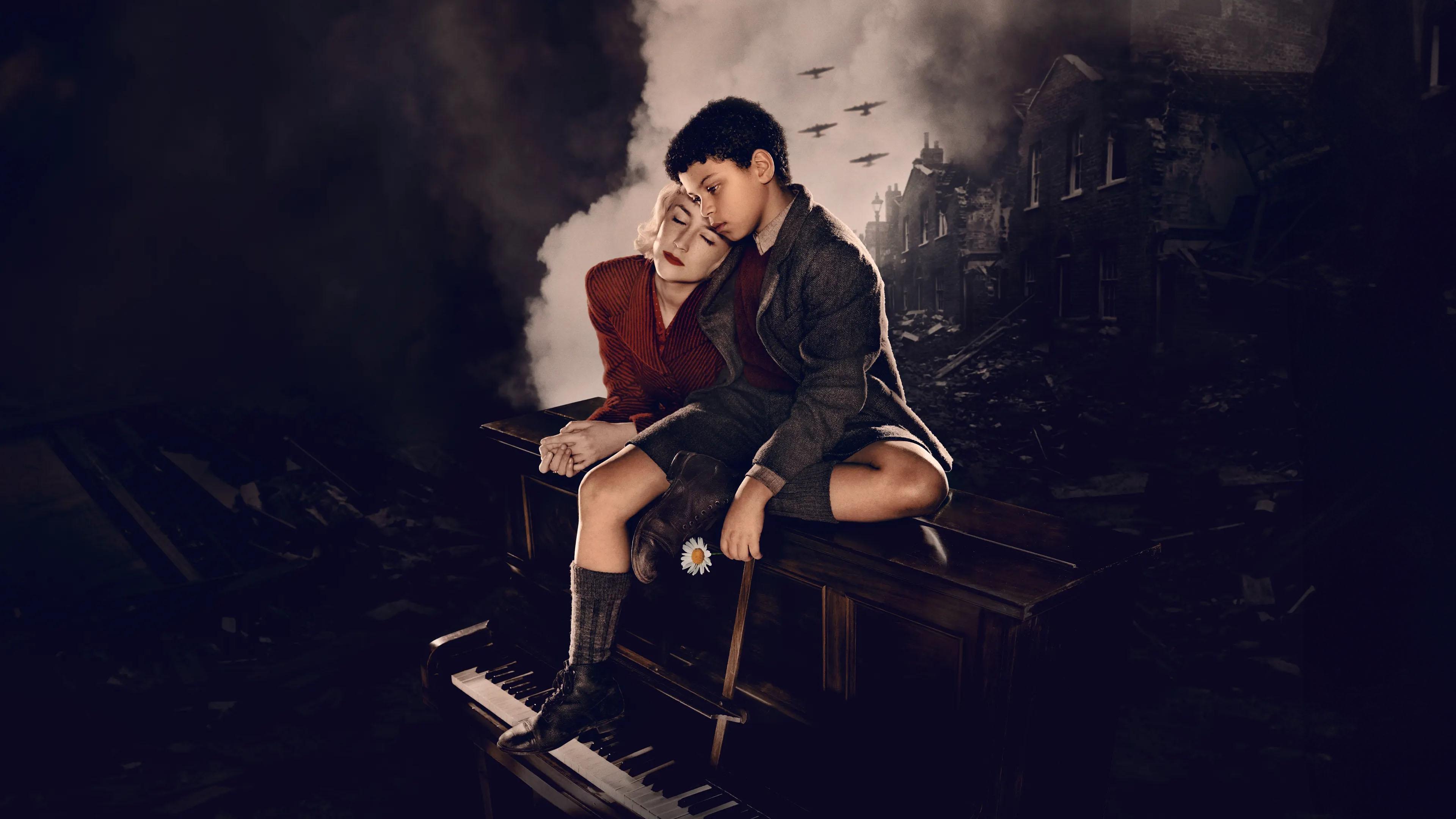
Blitz
In World War II London, nine-year-old George is evacuated to the countryside by his mother, Rita, to escape the bombings. Defiant and determined to return to his family, George embarks on an epic, perilous journey back home as Rita searches for him.

griggs79@griggs79
Steve McQueen's _Blitz_ is an incredibly watchable and engaging film that vividly portrays wartime London. Through his lens, McQueen challenges the commonly held notion that Londoners weathered the horrors of the Blitz with unwavering cheer, a stiff upper lip, and unity. Instead, _Blitz_ underscores the complex layers of a city already defined by its diversity, which McQueen portrays as teeming with cultural resilience. In particular, the East End, a refuge for those escaping persecution, is shown not merely as a site of suffering but as a resilient, multicultural community that speaks to the true character of wartime London. This challenge to the rose-tinted "keep calm and carry on" narrative is essential, grounding the film in a more inclusive historical reality.
However, _Blitz_ occasionally struggles under the weight of its grandeur. The film ambitiously tackles numerous stories and subplots, making it challenging to give each the attention it deserves. One subplot that particularly suffers is the portrayal of an Underground station flooding after a bomb hit—a moment famously depicted in _Atonement_, with the actual location in Balham. Relocating it to London Bridge heightens the fictionalization of the event. Many may leave the cinema, believing the event that caused the death of 68 people never happened as such McQueen's portrayal, though compelling, doesn't capture the same impact as _Atonement_, which coincidentally also starred Saoirse Ronan.
McQueen briefly gestures toward class disparities in air-raid conditions, notably by referencing the Stepney Communist Party, which pushed for equitable access to safe shelters. Yet one pivotal moment that could have underscored this tension—the Party's dramatic occupation of the Savoy Hotel to protest the gross inequality in shelter conditions—goes unmentioned. This action, poor East Enders storming the grand West End hotel, forced the government's hand to open Tube stations to be used as public shelters.
Despite these narrative oversights, _Blitz _remains a remarkable and impactful portrayal of London during its most challenging times. It offers a raw, multifaceted perspective that reshapes our understanding of wartime endurance and unity, making the audience feel the gravity of the historical events depicted.

CinemaSerf@Geronimo1967
With the Nazi bombs raining down around them, single mum "Rita" (Saoirse Ronan) has to take the difficult decision to evacuate her son "George" (Elliott Heffernan) from the London home they share with her father (Paul Weller). He isn't keen and so jumps from the moving train and tries to make it back home through a city populated by some kindly people and some Dickensian-style villains - and he encounters them both. Meantime, his mum is told of his absconding and as she tries to hold down he job in a munitions factory she must try to track him down. I thought Heffernan delivered really quite engagingly here, as did the rather menacing Kathy Burke with her brief appearances, but the film has a curious sterility to it. We know it's set amidst the random brutality of war, and the narration points out to us that that didn't all come from the skies above with racial prejudice never far from the surface, but it never looks or feels real. Clearly, Apple threw some money at it but the characters are all just too undercooked and there's an inevitability to the story that seems more about convenience than authenticity as it neuters the visceral humanity of the story. That last element isn't helped by a Ronan who seems very much to be going through the motions turning in an adequate enough performance but not one that wasn't being turned in on studio-based television dramas thirty years ago. Dickinson barely features and though it's all perfectly watchable, it's not really very memorable save for a young actor who gives us a knee-high view of man's venality and inhumanity.
